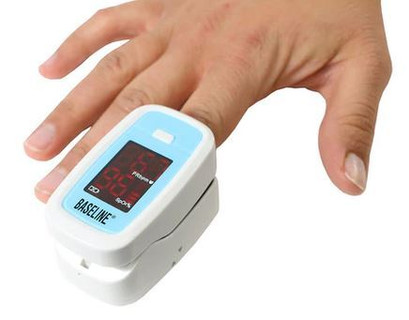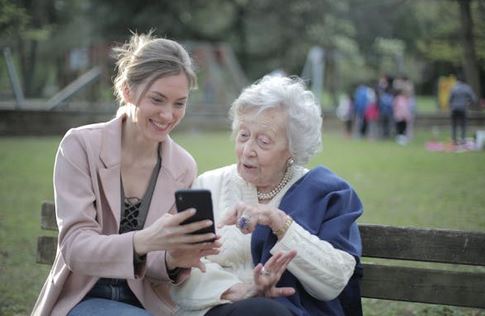Earning Patient Trust as a Caregiver: How to Build Strong, Compassionate Connections
In the world of caregiving, trust isn’t just a helpful trait—it’s the heart of every meaningful caregiver-patient relationship. Whether you’re supporting an elderly client, a person with disabilities, or someone recovering from illness, establishing trust is what allows your care to truly make a difference. When patients feel safe and valued, they’re more likely to share honestly, follow care plans, and feel comforted by your presence. But earning that trust doesn’t happen overnight. It takes intention, consistency, and heart. In this post, we’ll dive into the key ways caregivers can earn patient trust, with a focus on real, human connection—and a little SEO boost to help your message reach those who need it.
Communicate with Clarity and Compassion
One of the first steps in building trust is learning how to communicate effectively with patients. Clear, simple, and honest communication helps patients feel more in control of their care. Always explain what you’re doing and why, especially when introducing something new like a medication, routine, or piece of equipment. Avoid using overly technical language—opt instead for calm, reassuring words. Ask questions, listen actively, and show that you’re not just hearing them—you’re truly listening. This not only eases anxiety but helps build rapport. SEO-wise, using keywords like “caregiver communication tips” and “how to talk to patients with empathy” can help this content reach caregivers who are searching for guidance.
Be Consistent and Dependable
Trust is built on reliability. When you show up on time, stick to routines, and follow through on what you say, patients begin to feel they can count on you. Even something as small as remembering how a patient takes their tea or what time they like to go for a walk can go a long way. These small, consistent actions show that you pay attention and care. If something ever changes—like a delay or change in care—communicate that early and honestly. Predictability helps patients feel safe, especially those who may already feel a loss of control due to health issues.
Honor Privacy and Dignity
Respect is essential in any caregiving relationship. Patients—especially older adults—often worry about losing their independence or being treated like children. As a caregiver, it's vital to respect their boundaries. Always knock before entering their room, ask before performing tasks, and offer choices whenever possible. Whether it’s letting them pick their outfit or choose what they eat, giving them agency helps preserve dignity. Incorporating SEO-friendly phrases like “respect patient privacy in caregiving” and “how to treat elderly patients with dignity” can help this message reach a wider, care-focused audience.
Practice Patience and Show Empathy
Every patient has their own story, struggles, and personality. Some may be dealing with pain, memory loss, or frustration. Others may be fearful, shy, or resistant to help. Patience is key. When you meet their behavior with kindness instead of frustration, you send a powerful message: “I’m here for you.” Empathy—truly trying to understand what they’re feeling—helps bridge emotional gaps and builds deep trust. If you’re ever unsure how to help, simply sitting with them, listening, or offering a comforting word can go a long way.
Maintain Professionalism with a Warm Touch
Patients often rely on their caregivers not only for physical help but also for emotional support. Being professional doesn’t mean being cold. In fact, a calm, friendly attitude can help reduce stress and build emotional safety. Always be clean, organized, and respectful in how you present yourself. Avoid oversharing personal struggles or complaints. At the same time, don’t be afraid to show your personality—warmth and humor, when used appropriately, can humanize the caregiving experience and strengthen bonds.
Share a Bit About Yourself
While your focus should always be on your patient’s needs, sharing a little about yourself—your hobbies, your family, a funny story—can help break the ice and make your patient feel more connected. These small moments of shared humanity can turn a routine caregiving task into a meaningful exchange. Just remember to keep things light, appropriate, and always respectful of their space and preferences.
Invite and Embrace Feedback
One of the most direct ways to build trust is to show patients that their voice matters. Encourage them (or their families) to share how they feel about the care they’re receiving. Ask questions like, “Is there anything I can do differently to make you more comfortable?” Then take that feedback seriously—adjust your approach, check in again, and thank them for their honesty. This shows humility, respect, and a real commitment to their well-being.
Final Thoughts
Earning a patient’s trust as a caregiver is one of the most valuable things you can do—and it doesn’t come from one big moment. It’s built through consistent, everyday actions: listening, showing up, offering kindness, and treating every person with the dignity they deserve. Whether you’re a seasoned caregiver or just starting out, remember that your presence alone can be a source of comfort. Keep showing up with empathy and professionalism, and trust will follow.
Caregivers, keep your patients satisfied and safe with medical supplies from SafeWell Medical Supply. Low prices plus fast and free shipping. Save an additional 5% off your already low priced order with coupon code: 5OFFNEW.



















